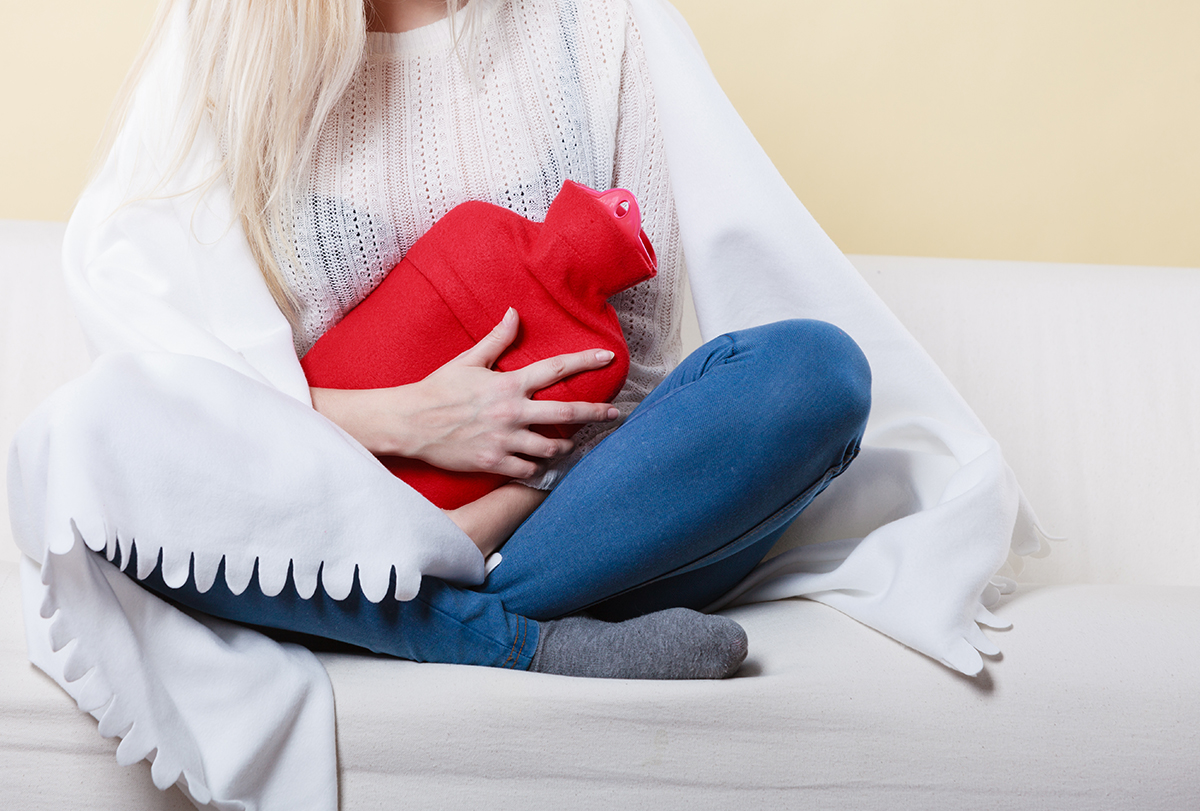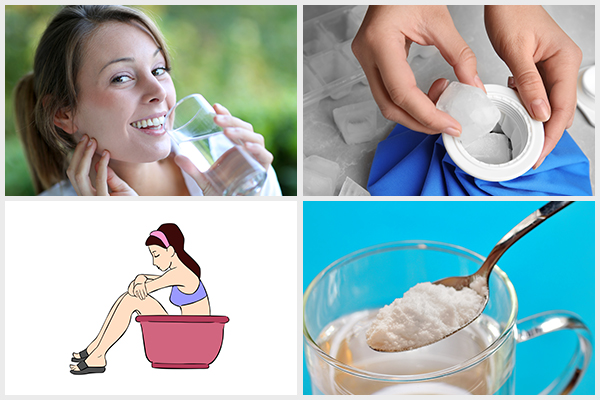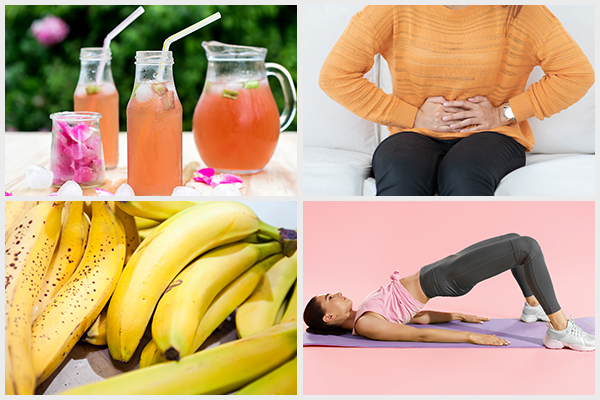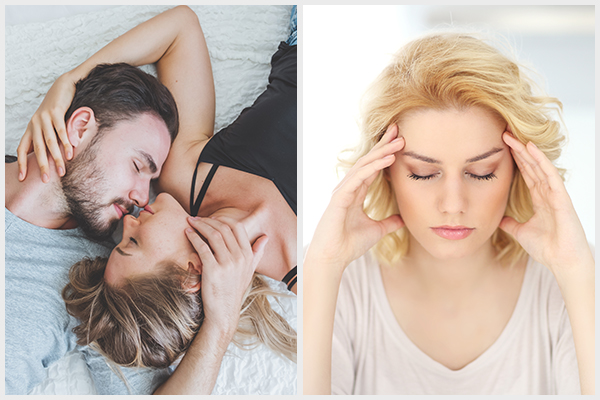In this article:
It can be hard to deal with interstitial cystitis (IC), also known as painful bladder syndrome (PBS), but there are several home remedies that can help manage symptoms and improve quality of life. These remedies can include dietary changes, bladder training exercises, stress reduction techniques, and natural supplements.

It’s important to consult with a healthcare provider before trying any new home remedies to ensure they are safe and appropriate for your specific situation.
In some cases, medical treatments may also be necessary to effectively manage interstitial cystitis symptoms.
Home Remedies for Interstitial Cystitis
Here are the remedies you can try for interstitial cystitis.
1. Drink enough water
If you are experiencing a flare-up of IC, you can try some simple strategies at home to alleviate your symptoms.
One of these is to drink more water to reduce the concentration of your urine. This can be particularly effective if your flare-up is related to your diet. (1)
2. Try heating pads or cold packs
Applying either hot packs or cold packs to the suprapubic or perineal area may provide some relief from IC/PBS discomfort.
Cold packs can help reduce inflammation and swelling in the affected area, which can be helpful for managing pain and discomfort. Some people may find that applying a cold pack to the lower abdomen or perineum helps alleviate IC/PBS symptoms.
On the other hand, heat therapy can help relax the pelvic muscles and improve blood flow to the affected area. This can help ease pain and discomfort associated with IC/PBS. Some people may find that using a heating pad or taking a warm bath helps relieve their symptoms. (2)
3. Perform hot sitz baths
Hot sitz baths have been suggested as a home remedy for alleviating pain in IC/PBS, and this may be due to several reasons.
First, the hot water can provide counterirritation, which may distract the nervous system and provide pain relief. Second, immersion in hot water may reduce anal pressure, which can also be beneficial for patients with anorectal pain.
Additionally, hot sitz baths may help to relax pelvic floor muscles, which can become tense and contribute to pain in IC/PBS. The warmth of the water can help to promote relaxation and relieve tension in these muscles. (3)

4. Drink baking soda water
A low-acid diet may also be recommended to decrease the amount of acid in the urine, and urinary alkalinization with baking soda or potassium citrate may help to reduce symptoms. (4)(2)
Simply add around 1 tsp of baking soda in a cup of water, mix it well, and drink it 2–3 times a day for urinary alkalinization.
5. Drink rhubarb tea
Rhubarb is one of the herbs that were used in an herbal tea combination as a treatment for IC/PBS in a pilot study.
Rhubarb has been traditionally used in Chinese medicine to treat various health conditions, including urinary tract infections and kidney disorders
p. In the context of IC/PBS, it is believed that rhubarb may help reduce inflammation in the bladder and alleviate pain and discomfort.
While some studies have suggested that rhubarb may have anti-inflammatory and analgesic properties, there is limited scientific evidence to support its use for IC/PBS specifically. (5)(6)
6. Focus on training your bladder
Bladder training is a technique used to gradually expand the bladder’s capacity and improve bladder control. It can be helpful for IC/PBS patients who experience urinary frequency and urgency.
Bladder training involves timed voiding, in which the patient urinates on a schedule rather than when the urge arises. This technique helps to gradually expand the bladder’s capacity, reduce urinary frequency, and improve bladder control.
Bladder training can be used alone or in combination with other therapies, such as pelvic floor muscle training and biofeedback. (4)(7)
7. Implement dietary modifications
An elimination diet of bladder irritants and dietary modifications may be helpful for managing IC/PBS symptoms in some patients.
Common bladder irritants include food rich in potassium (chocolate, tomatoes) coffee, tea, tobacco, alcohol, citrus fruits, spicy foods, and artificial sweeteners.
Arylalkylamine-containing foods have also been seen to cause interstitial cystitis symptom exacerbations and include the following: (4)(2)
- Bananas
- Beer
- Cheese
- Mayonnaise
- Aspartame
- Nuts
- Onions
- Raisins
- Sour cream
- Wine
- Yogurt

8. Perform pelvic floor or Kegel exercises
The use of pelvic floor muscle training (PFMT) as a treatment modality for patients with IC/PBS has been studied with positive results in improving quality of life.
A study conducted by Borrego-Jimenez and colleagues aimed to evaluate the effectiveness of PFMT in improving symptoms and quality of life in women with IC/PBS. The treatment group showed significant improvement in pain, urgency, and frequency of symptoms compared to the control group. Additionally, the treatment group demonstrated a significant improvement in quality of life.
Studies suggest that PFMT can be an effective treatment modality in improving symptoms in IC/PBS. These noninvasive techniques can be easily implemented in a clinical setting and provide an alternative or complementary approach to traditional medical therapies.
Pelvic floor muscle relaxation includes placing knees against the chest, reclining with spread legs, or squatting. (8)(2)
9. Seek sex therapy
It is common for individuals with interstitial cystitis to experience sexual dysfunction, including pain, discomfort, and decreased sexual responsiveness and enjoyment.
There are various self-care strategies that interstitial cystitis patients commonly use to manage symptoms during and after sexual activity. These may include: (4)
- Emptying the bladder before and after sex to reduce the pressure on the bladder and decrease the likelihood of urinary tract infections (UTIs)
- Avoiding prolonged intercourse to minimize pressure on the urethra and bladder
- Minimizing pressure on the urethra by trying different positions during sex or using a lubricant
- Engaging in outercourse (sexual activities that do not involve penetration) as an alternative to intercourse
- Cleansing the genital area after sexual activity to reduce the risk of UTIs
- Taking painkillers or antispasmodics before engaging in sexual activity to manage pain and discomfort
It’s important to note that these self-care strategies may not work for everyone, and individuals with interstitial cystitis should work with their healthcare provider to develop a treatment plan that addresses their specific symptoms and needs.
In some cases, healthcare providers may recommend additional treatments, such as physical therapy or medication, to manage the symptoms during and after sexual activity.

10. Manage stress adequately
Stress can worsen IC/PBS symptoms, so it’s crucial to learn positive coping techniques to manage stress levels. Catastrophic thinking and venting are negative coping strategies that can lead to more pain and depression.
Positive coping strategies such as exercise, meditation, and joining support groups can help manage symptoms and improve well-being. Seeking emotional and social support can also help patients feel less isolated and increase their sense of control, leading to improved coping abilities and reduced depressive symptoms. (2)
Patients who seek advice or information from others can also benefit from a better understanding of their condition and ways to manage their symptoms. This approach can lead to decreased feelings of isolation and improved coping abilities.
Overall, seeking emotional and social support can be a critical component of a patient’s holistic approach to managing IC/PBS. (2)
Preventing Interstitial Cystitis
While there is no known way to prevent interstitial cystitis, there are ways to manage its symptoms. It’s essential to learn more about lifestyle changes that can help reduce the pain and discomfort associated with interstitial cystitis. By taking steps to manage symptoms, patients can improve their overall quality of life. (9)
Most-Asked Questions About Interstitial Cystitis
Can interstitial cystitis lead to depression?
Living with chronic pain and discomfort can take a toll on a person’s emotional and psychological well-being. People with interstitial cystitis may experience anxiety, depression, or social isolation. (1)
Is there a cure for interstitial cystitis?
There is no available cure for interstitial cystitis. However, it is manageable by implementing proper lifestyle and dietary interventions.
Final Word
Interstitial cystitis (IC) is a chronic inflammation of the bladder that is very painful. IC may lead to an increased impulse to urinate, discomfort during intercourse, and psychological issues such as anxiety, depression, and trouble sleeping.
The good news is that it can be managed effectively with at-home remedies and interventions such as those discussed above.
 Continue ReadingWhat Is Interstitial Cystitis and How Is It Diagnosed?
Continue ReadingWhat Is Interstitial Cystitis and How Is It Diagnosed?
- Was this article helpful?
- YES, THANKS!NOT REALLY


